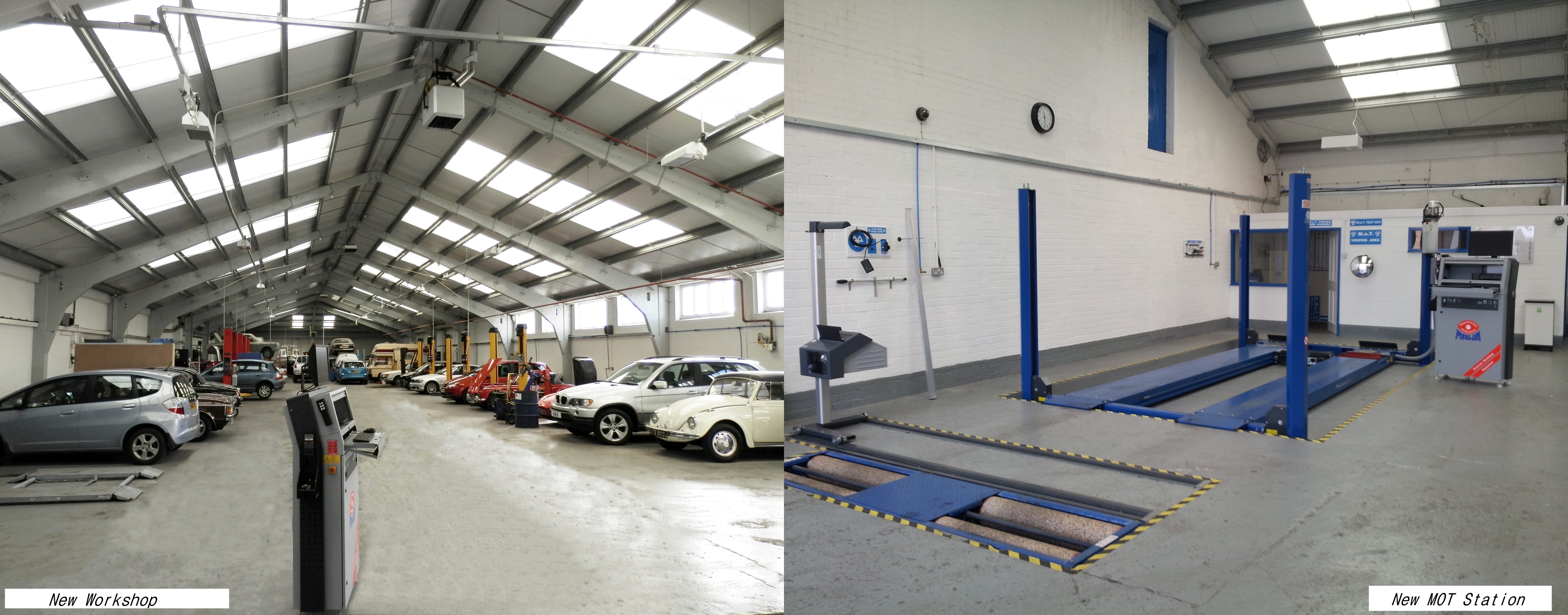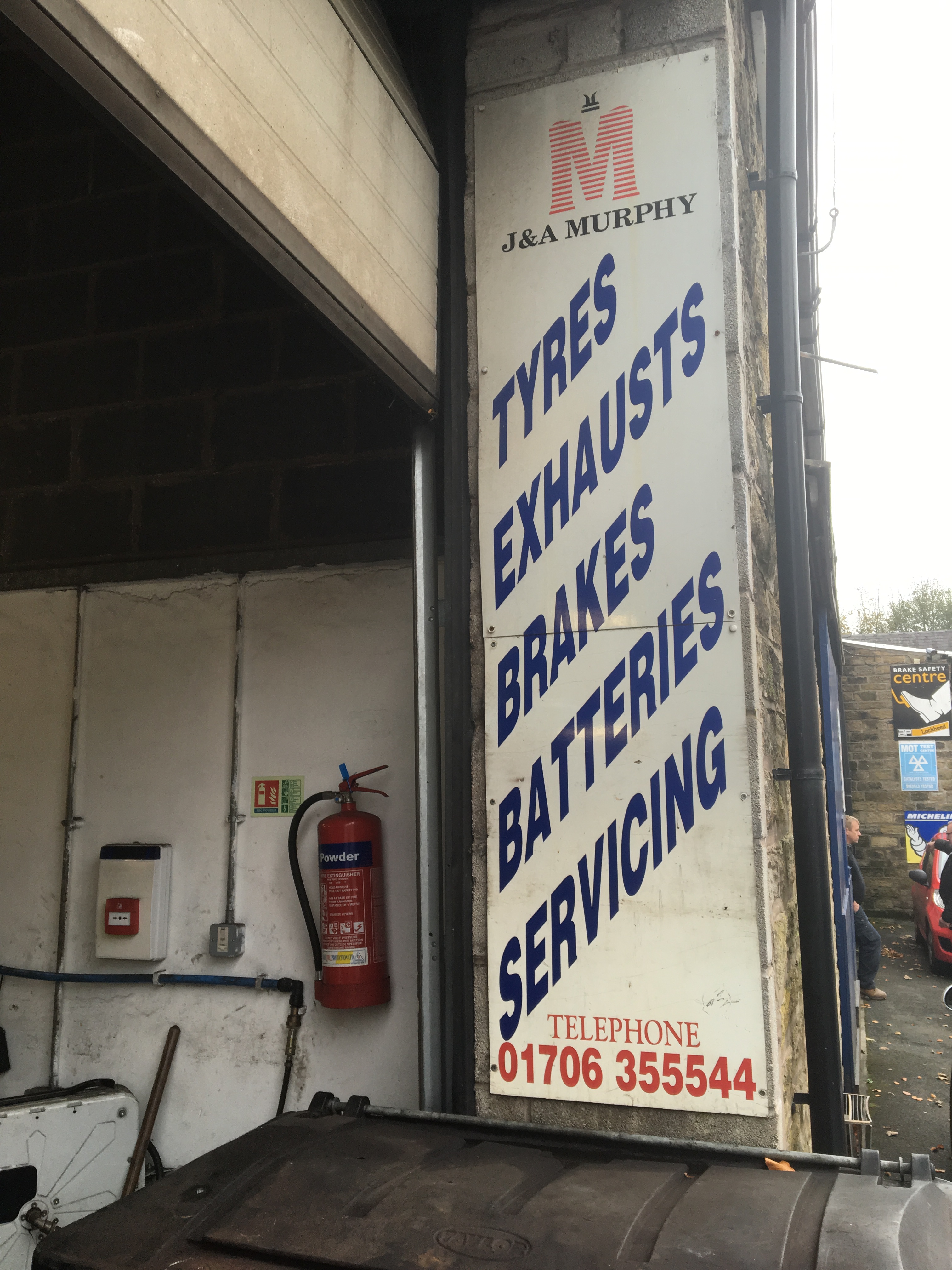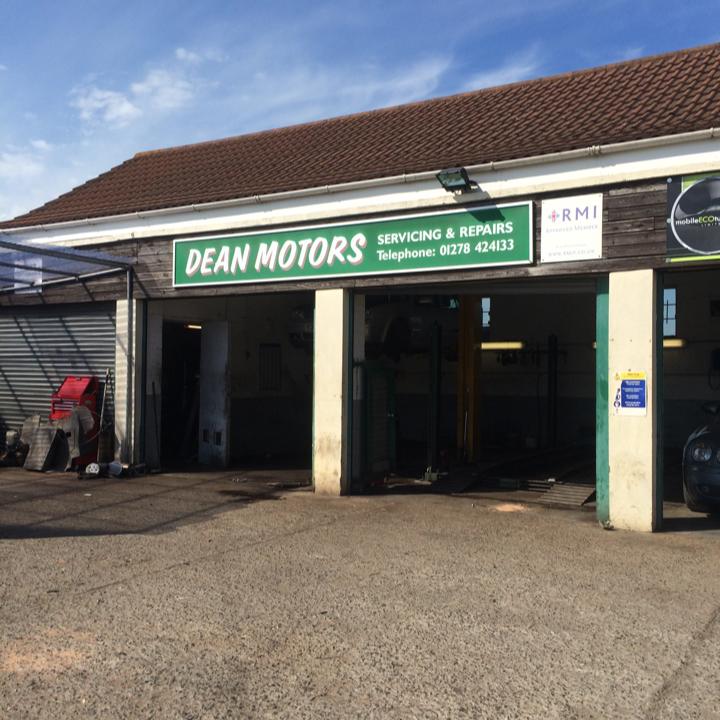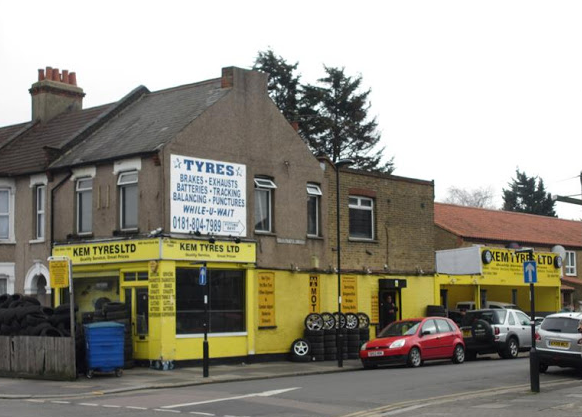Garage Services
Welcome to the ultimate A-Z guide on garage services and everything you need to know in order to keep your car in the best condition without needing to go anywhere else. From information on a cambelt replacement, car mot, brake specialist and a whole host more, everything you need to know is here.
Highly rated garage services in the UK
The following UK garage services have received the highest ratings from their local communities.
Table of Contents
Popular Locations
What are garage services?

Garage services can cover a range of items including car services, MOTs, repairs and replacements of brakes, tyres, engines, exhausts and a whole host of car-related services. All of which can be dealt with through companies who specialise in garage services and general car maintenance.
This page is the ultimate A-Z guide for garage services as we go through what's offered, why you need it and how you can keep your costs to a minimum.
Car Servicing
If you own or use a car then you'll already be familiar with the idea of a car service and not only the benefits of it but also the cost. Depending on what's wrong with a car it can be expensive to fix it, however, if you don't identify minor issues with a car service then you might be left paying for a larger repair than you first anticipated.
Find out more about car servicing with our handy FAQ below.
What is a car service?
A car service is a health check for your car with the aim ensuring that it's in tip-top condition and safe to drive. A car service is also a vital aspect of general car maintenance as it can potentially save you money in the long run by allowing engineers to quickly identify problems before they become a bigger problem, saving the pounds in your pocket.
What's included in a car service?
A standard car service will check a number of areas depending on the extent of the checks you require. Most if not all of the following will be thoroughly looked at during a service:
- Lights
- Wipers
- Fluid Levels
- Air Filter
- Handbrake
- Fuel Filter
- Wheel Alignment
- Cambelt
- Suspension
- Spark Plugs
- Clutch Cable
You may also find that many garage's offer free collection and delivery of your vehicle from your place of home or work. Some may even be able to offer a courtesy car for an additional cost which may help you to get on with your normal day-to-day life.
How often does a car need servicing?
The question of how often a car needs servicing comes up every now and then and in truth, it's different for every vehicle. The decision will be dependent on the overall condition of the car, how old it is and how long it's been since the last time it was serviced.
In general, a car should be serviced every year or 10,000 to 15,000 miles, whichever comes first. This allows cars to remain in the best possible condition and can also help you to save money in the future. A service should identify smaller issues that have the potential to develop into bigger issues later on, so it's far cheaper to get them fixed during a service rather than later on when the problem can get worse.
How long does a car service take?
The length of a car service really depends on how thorough the checks need to be. For example, a car that hasn't been serviced for a significant amount of time will need to be serviced and checked more thoroughly than a car that has seen regular checks since its last major service.
So, how long should a car service take? Well, on average a garage service technician or engineer will need two to three hours in order to carry out standard checks.
Why is a car service important?
Ensuring that your car is serviced regularly is important not only to keep your car's logbook up to date with evidence of checks but also to guarantee the safety and reliability of your car.
Putting your faith in the fact that your car will run correctly is something that most people do every morning when they turn the ignition key. It's only when things start to go wrong that we take for granted what a car can offer us in terms of freedom and convenience, so a routine car service goes a long way to ensuring that our cars stay on the road and out of trouble.
Where can I get my car serviced?
You can get your car serviced at any reputable garage or test centre by getting in touch with them before your car needs to be serviced. Make sure you and your local garage get plenty of time to fit a service in, as you may find that they may have a backlog of MOTs and services to get through before they have an available slot. Get in touch and book your service around at least a few weeks before you want it to be done. To find a local garage, visit our engine repairs page and place a search in your local area.
MOT

An MOT check is something that most car owners dread but while it can be a cause for concern as far as the bank balance goes, an MOT ensures that your car is legally safe to be on the road.
What is an MOT?
Originally named after the Ministry of Transport, the MOT is an annual test for every vehicle (older than three years) that ensures it meets minimum legal requirements on a number of aspects related to the safety of the driver and his or her passengers in a vehicle at any time. As long as the vehicle meets these requirements, it will be deemed as roadworthy and allowed to be used on public and private roads.
Failure to meet the MOT standards, however, will mean that it will need to be re-tested before its MOT certificate expires so that it can pass, otherwise, it will not be allowed on any roads.
Why do I need an MOT?
An MOT is legally required in order to ensure that your car is fit to be on the road. The MOT test is an annual check of your car's safety and reliability and is to ensure that your car won't put you, your passengers or others on the road in danger.
Will my car pass an MOT?
It's the question that everyone wants the answer to: will my car pass an MOT? Well, in truth it's difficult to know for sure as there are so many parts of how a car works that needs to be checked.
For starters, you should ensure that your number plate is easy to read, all mirrors, wipers, windscreen and lights are working correctly and that your brake fluid and screenwash are topped up. Your tyres will also need to have at least 1.6mm of tread remaining (although more is better) in order to give your car the best possible chance of passing an MOT and to be confirmed of its roadworthiness.
What happens if my car fails an MOT?
If your car fails its MOT test then you'll be issued with a VT30 certificate which shows that your car has been refused an MOT. However, this doesn't mean you can't do anything about it. If this does happen to you, you must repair the issues and then submit your car for a retest.
If your car is still within its MOT period when it fails then you're free to drive the car to get it repaired and back to get it tested before the date it runs out. However, if your previous MOT certificate has expired and your car has failed its MOT test, then you may only drive it to and from a test centre, and even if this is the case, you must check with your car insurance provider whether or not you're covered to do so as some may exclude this instance. If it is excluded, they may be able to offer cover for an additional premium but this will vary depending on the provider.
Are MOT retests free?
While it's not a hard-written rule, the general consensus amongst garage's who offer MOT tests is that retests are free. Usually, these places will also be able to help repair a damaged car for an MOT test and ensure that after the repair, it passes with no additional payment required for the second MOT test.
Where can I get an MOT for my car?
You can get a car MOT check from most reputable local garages, many of which you'll find right here on Thomson Local on our MOT testing centres page.
When you're looking to book at an MOT test centre, make sure you confirm whether or not they'll offer you a free retest should your car fail its first MOT. By doing so, you'll have the peace of mind of knowing that you won't have to pay twice should you receive an MOT failure the first time around.
Tyres

In order for a car to work fluently, every part of it must operate efficiently and the tyres are no different. It’s not a surprise to say that any issues with one of your tyres will render your car unusable, so make sure you know what keeps them in pristine condition and what to look for before major problems arise.
What tyres do I need?
All cars will be fine with the ones that come as standard, however, should you need to change one of your tyres then you'll need to find the size.
Most tyre sizes can be found on the sidewall and will be a series of numbers that cover the width of the tyre, aspect ratio, rim diameter and lastly, the load index.
For example, a 185/65R15 86 T will mean that the tyre width is 185mm, with a 65 ratio, a rim diameter of 15 and a load index of 86kg.
In general, standard tyres like these will be fine, however, if you live in a particularly cold environment during the winter months then you may need to look for winter tyres which can handle icy roads much more efficiently than standard tyres ever could.
How to maintain tyres?
There's a number of things that you can do in order to ensure that your tyres always remain in tip-top condition. To start with, ensure that the pressure is within the manufacturers' recommendation range, always check for damage as well as obvious wear and tear. Ensure that the tread is within legal limits - which is a minimum depth of 1.6mm - as well as always maintaining good driving etiquette and you'll see your tyres lasting a substantial amount of time.
Signs of tyre damage
If you're looking to maintain tyres correctly then you'll need to know what the signs of tyre damage are in order to identify when you need to take action.
Any signs of cracking or cutting within the sidewalls is a big indicator of a problem, as is an uneven or excessively worn tread, especially if you believe you are in danger of falling below the 1.6mm legal limit. Visible bulges or blisters on a tyre is another sure sign as is any unusual noises or excessive vibration when driving.
If you discover any sign of these then its an early sign of tyre failure and you need to take action before it starts to harm other parts of your vehicle, significantly raising the total cost of repair.
What are winter tyres?
Designed specifically with the cold weather in mind, winter tyres offer an improved level of grip and control when compared to standard ones. They do this by using a softer rubber compound which keeps its shape easier in cold temperatures while also increasing traction against the road, especially when it's icy or slippery.
However, while winter tyres perform significantly better below 7 degrees Celsius, they can offer a disadvantage when compared to standard tyres at temperatures above this, increasing the braking distance and offering poorer grip in general.
Can tyres explode?
Blowouts can happen, especially if you don't keep up with regular tyre maintenance with the worst instances putting you at severe risk of an accident.
Having the wrong amount of pressure within a tyre, an impact with a road hazard or careless driving can all lead to a blowout on both new and old tires. So ensure that you're keeping up to date with the health of your tyre and driving safely in order to ensure you don't experience a blowout.
Can tyres go out of date?
While the answer will depend on the miles they've done and the care of the driver, all tyres will have an expiration date that will be detailed on the tyre itself. As a general rule, the tyre's expiration date will be exactly six years after it was first used, after this date, it's good practice to change your tyres.
Where can I get new tyres?
You'll be able to get new tyres at any local garage who specialises in car maintenance and repair. Or alternatively, you can visit our tyres page to perform a search in your area.
Brakes

Potentially the difference between life and death, brakes are a fundamental part of any car that needs to be at its best for every drive.
How brakes work
The basic principle of a car's braking system is that a driver pushing a pedal starts a chain reaction which leads to brake fluid being pushed down a pipe which reaches a wider cylinder that then pushes brake pads towards a brake disc, slowing the car down and stopping the vehicle. The force of the initial pedal push by the driver will determine the rate at which the car slows and stops.
How can I check my brakes?
Like most areas of a car, you'll need to make a visual inspection of the brake discs, listen for abnormal sounds or vibrations and see if there are any unusual warning lights appearing on your car's dashboard. If you are concerned with any part of your brakes, no matter how small, it's worth a visit to a local garage in order to ensure there's nothing seriously wrong.
Where can I find a brake specialist near me?
Any local garage who specialises in car repair or maintenance will be able to assist with your brake issues. Make sure you check out our local list of brake repair specialists right here on Thomson Local in order to find the expert that you're after.
Engines

The engine is often referred to as the heart of the car due to the fact it is able to convert heat from petrol/diesel and turn it into energy that allows the wheels of the car to move.
How do car engines work?
Car engines work by sparking a mixture of compressed air and vapour from petrol that allows it to burn consistently which allows this mixture to burn, expand and provide power to the vehicle.
Due to its complex nature, the structure of the engine itself has to be robust enough to withstand what's happening and as a result, engines are split into two sections: the lower and more heavier part and an upper section which contains valve-controlled passages which allow the air and fuel mixtures to enter the engine while the bottom section protects the engines' moving parts.
Why do engines overheat?
There are a number of ways that a car engine can overheat but the most common cause is a loss of coolant.
A coolant leak means that there isn't a mechanism in the engine to cool it in within a sufficient period of time. It can leak from the radiator, head gasket and a few other areas and while you may think you can plug the leak yourself, the best practice is to allow an expert car mechanic to carry out the repair safely and efficiently.
What do my engine warning lights mean?
If the warning light on your engine's dashboard is lit up then there could be a whole host of reasons as to why it's appearing, such as:
- Worn Spark Plug
- Loss of Coolant
- An Oxygen Sensor Issue
- Dirty Oil
- Oil Pump Failure
- Bad Fuel/Air Mixture
It may also be an issue with any part of an engine such as pistons, cylinders or rings but unless you get a trained engine technician to identify the problem, you won't know for sure.
Engine repairs near me
If you think there are any issues with your engine, it's best to take your car to a garage near you. If you don't, then you run the risk of the problem getting worse and your bank balance being hit harder. Make sure you take this possibility out of the equation by searching for local engine repairs near you on Thomson Local.
Exhausts

An exhaust helps to keep you and your passengers free of some of the harmful gases which come out of your car. It’s a vital component which helps to also reduce noise, as well as escort harmful pollutant gases from the engine and out the back of your vehicle.
How exhausts work
Exhausts aim to take gases from the combustion chamber of your car's engine and funnel them out of the back end of the car. The reason for this is to reduce noise coming from the engine and also to take harmful emissions away from the passenger part of the vehicle.
In normal circumstances, the exhaust runs the length of the car and takes fumes from underneath the engine - through a catalytic converter which reduces the number of harmful pollutant gases - and runs them along the underside of the car and out the back, usually through a muffler which tries to reduce the noise and ensure gases are taken away from the vehicle.
If you need help with your exhausts, you can find an expert right here on Thomson Local by visiting our car exhausts page.
Who fits exhausts near me
You can find a variety of different garage services and car experts right here on Thomson Local. If you've got any potential exhaust issues and need to get it looked at then you need to find an expert and one that's local to you, something that you'll find right here.
Looking for garage services in your local area?
If you’re looking for garage services, a car mechanic or a vehicle technician then you’ll find them right here on Thomson Local. You’ll not only find local garage services but you’ll also find many who come with reviews from customers who live near you, meaning that you’ll be able to find great garage services that are close to your location that come with recommendations from people who have used them.
























